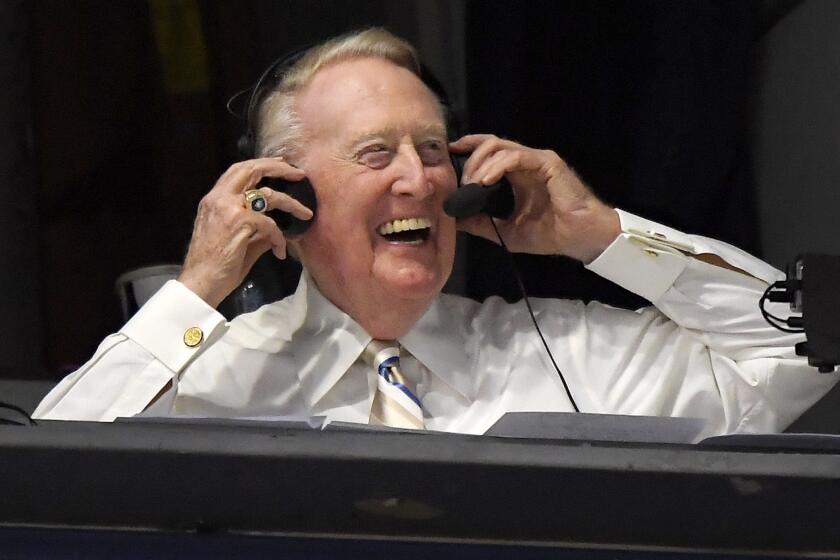Vin Scully bridged the generations in L.A. ‘It’s like your childhood ... is now really over’
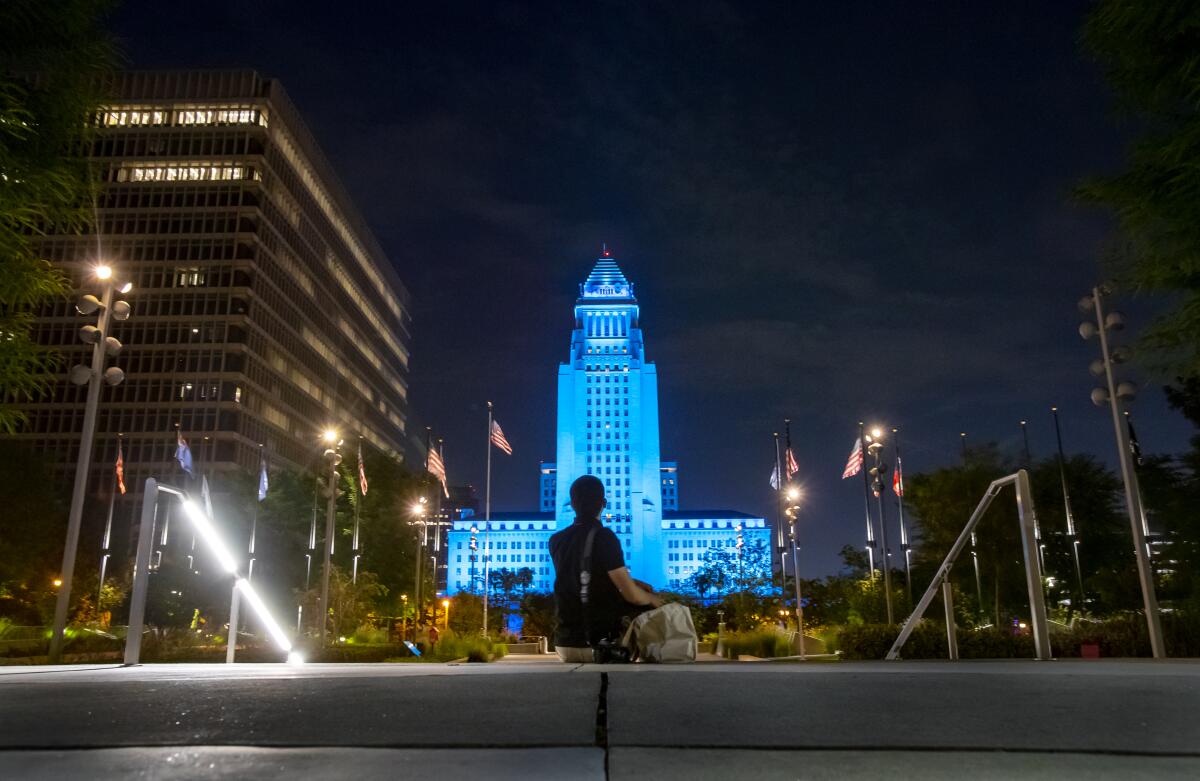
- Share via
Audri Sandoval Gomez was watching the Dodgers-Giants game Tuesday night with her daughter when the announcer broke in with the news of Vin Scully’s death. Isabella, who was 3 when the legendary broadcaster retired in 2016, could not understand why her mother had started to cry.
Gomez, 40, tried to explain. A die-hard Dodgers fan all her life, she wanted to talk about his storytelling, his poetry, the impact that he made beyond describing ballgames. But she kept thinking back to her family’s start, coming to this country from Mexico.
Scully’s voice on radio and television was in the living room day in and day out, drawing the generations of her family closer to one another as they cheered and groaned to his play-by-play accounts and sat spellbound by the fabulous stories he spun.
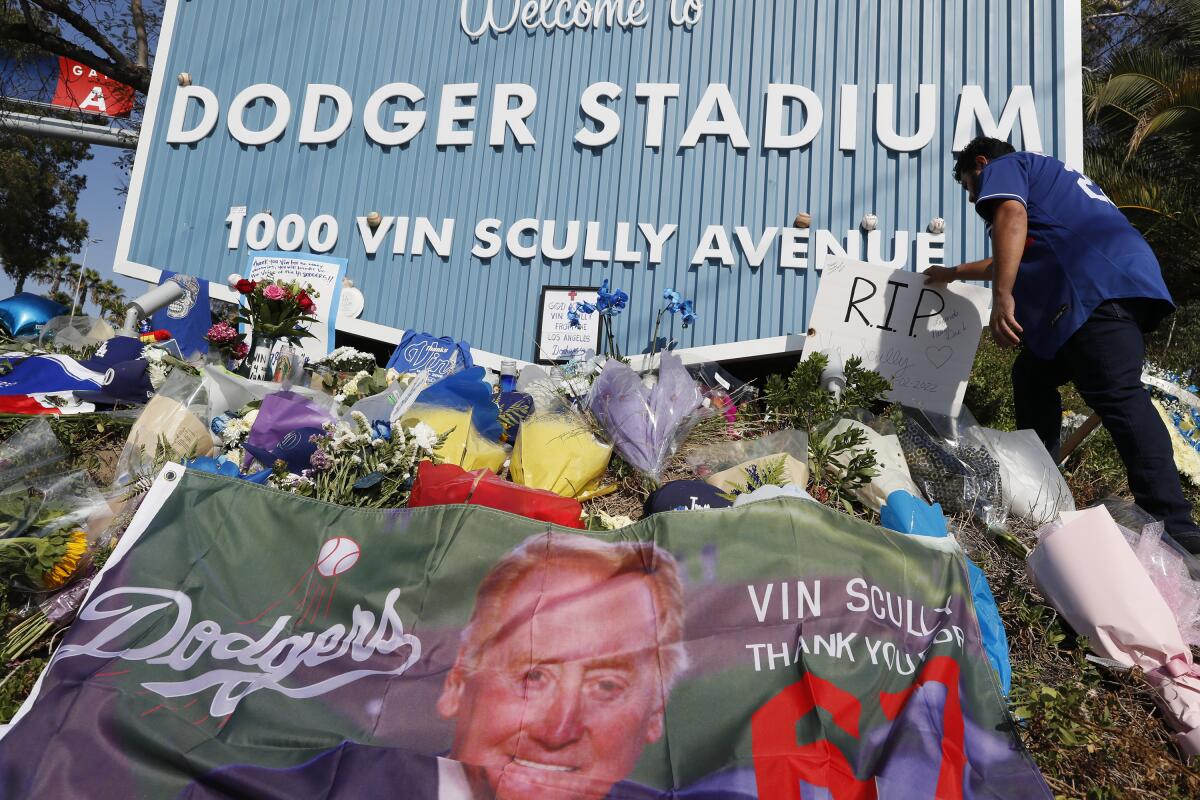
He called the game so beautifully, she recalled. His voice was magical, but he was also a bridge across time, drawing the young and old together with lessons of life that were easy to understand.
She turned to her daughter. There would be more to say, but for now the introduction was simple.
Photos document the reaction of Angelenos to the news of legendary Dodgers broadcaster Vin Scully’s death this week.
“Do you know those famous words?” she said. It’s time for Dodger baseball.
Isabella nodded.
“Well, those were his.”
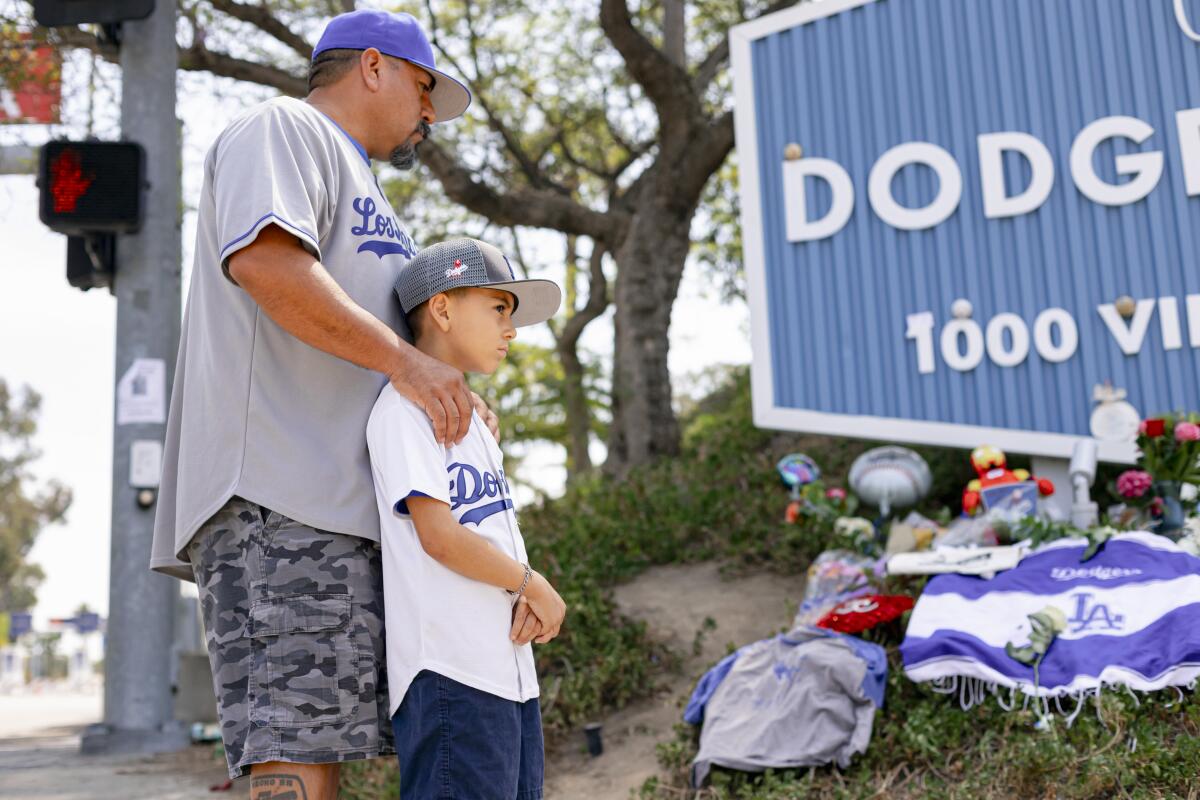
Isabella was taken aback — “He said that?” — and Gomez knew that she had taken the first step, passing part of Scully’s life onto her daughter just as her parents and grandparents had done for her years ago.
For nearly 60 years, Scully enthralled Angelenos with stories from Dodger Stadium and from the road, but his reach into their lives is measured less by the strength of that broadcast signal than by four generations who found themselves mesmerized by the cadence of his voice and his impromptu lyricism.
Other cities had their Red Barber (New York) or Harry Caray (Chicago), but Scully belonged to Los Angeles. Arriving when he was just 30, he came of age professionally in this city.
The city, if not the region, was quickly modernizing and growing, and he was there to take it all in — charming, captivating and educating Dodgers fans through 11 presidents.
He helped carry Los Angeles through its tragedies, and whenever the city lost its voice — challenged as it was by the riots of 1965 and ’92, earthquakes in Sylmar and Northridge, wildfires and recession — Scully could be counted on.
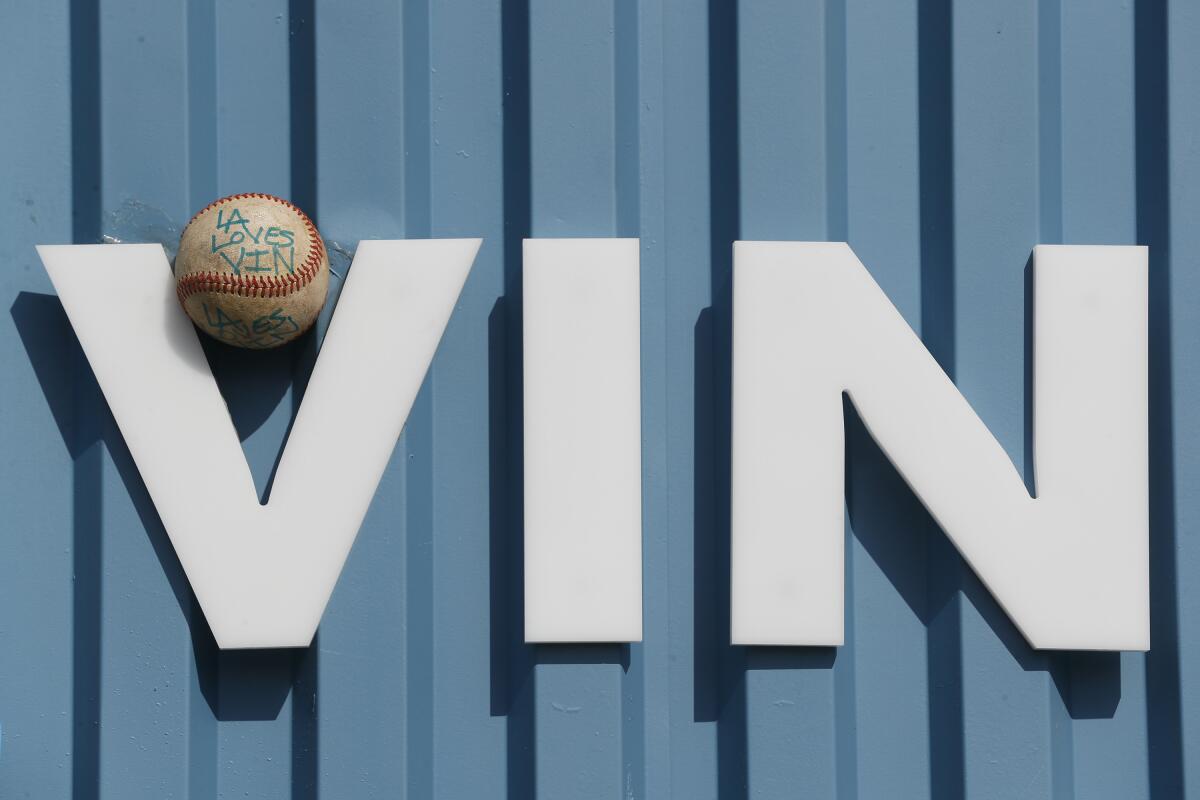
Baseball was his inspiration, and from opening day into the fall, he let its rules and logic set the tone for an understanding of life that often transcended the sport.
“Baseball to Vinny was much more than just a swing and a miss,” said Zev Yaroslavsky, the former L.A. city councilman and county supervisor who remembers as a boy defying his father by listening to games in his bedroom at night and falling asleep to the cadence of Scully’s voice. “He was poetic and lyrical. He had this innate ability to paint a verbal picture that was worth a thousand pictures.”
Yaroslavsky remembers listening to a broadcast in 1959. He was 10, and Scully was calling an exhibition game between the Dodgers and Yankees.
Before the start of the sixth inning, Scully described how the Coliseum went dark and 93,000 fans held aloft matches that they had lighted in tribute to Roy Campanella, the Brooklyn Dodgers’ star catcher who was paralyzed in a car crash before spring training in 1958, the year the team arrived in L.A.
“I could not tell you five things about 1959,” Yaroslavsky said. “But Vin Scully calling the Roy Campanella candle-lighting game is etched in my psyche, and that was the year that my mother died.”
The rhythm of Scully’s speech and the simplicity of his narratives filled silences in homes when explanations were too hard to find and when parents might be at a loss for words.

Lakewood resident Mary Alice McLoughlin, a lifelong Dodgers fan, grew up in Wilmington, and her father worked for Union Oil. During the summer, the radio or TV was always tuned to the Dodgers, so in 1974 when she was 14 and her mother died of cancer, Scully’s voice — “that Irish tenor with a bit of New York in it” — was reassuring.
“To have Vinny on was like, ‘OK, maybe things are going to be all right,’ ” she recalled. “Maybe the bottom hasn’t fallen out of the whole world. His voice was so comforting. It made me feel that things would be OK again.”
As much as Scully was a historian and a journalist — researching each player, even the umpires — he also was something of a parent for younger listeners, who thought they were listening to a baseball game but learning about patience and humility, a respect for tradition and an appreciation of statistics and facts.
He returned thank you notes. He signed programs. Most of all, our readers recall that he was there calling Dodger games, in good times and bad.
Don Cardinal, who grew up listening to the Dodgers from his home in Downey during the 1960s, credits Scully with teaching him long division in the course of calculating ERAs and batting averages. But there was more that he learned as well.
He too lost a parent, his father, at an early age, and being a teenager, he was angry. And Scully — in a voice that was calm and authoritative — guided him on some level, passing along wisdom that is typically shared by older members of a household.
“He wasn’t shy about helping us understand how we should behave,” said Cardinal, who especially admired that Scully talked as much about players on other teams as he did about Dodgers. “He taught me that it’s OK to care about your team — but not at the cost of the other team — and that valuing good play is more important than political parties or the color of someone’s skin.”
Scully also was clear with his audience that baseball was just a game, whose enjoyment comes from seeing what players — all players — can achieve. Never didactic or heavy-handed, he let the story line evolve from the action, playing it right down the middle, no matter how high the stakes or how disappointing the loss.
In remembering Scully, McLoughlin started to cry. “It’s ridiculous,” she said. “He was 94. We all knew this was coming, but we all hoped it would be later rather than sooner.”
In explaining the feeling, she paused.
“It’s over,” she said. “It’s like your childhood — which, sure, was gone a long time ago — is now really over.”
And for Angelenos, that means saying goodbye to the man who touched so many families across the generations.
More to Read
Sign up for Essential California
The most important California stories and recommendations in your inbox every morning.
You may occasionally receive promotional content from the Los Angeles Times.

